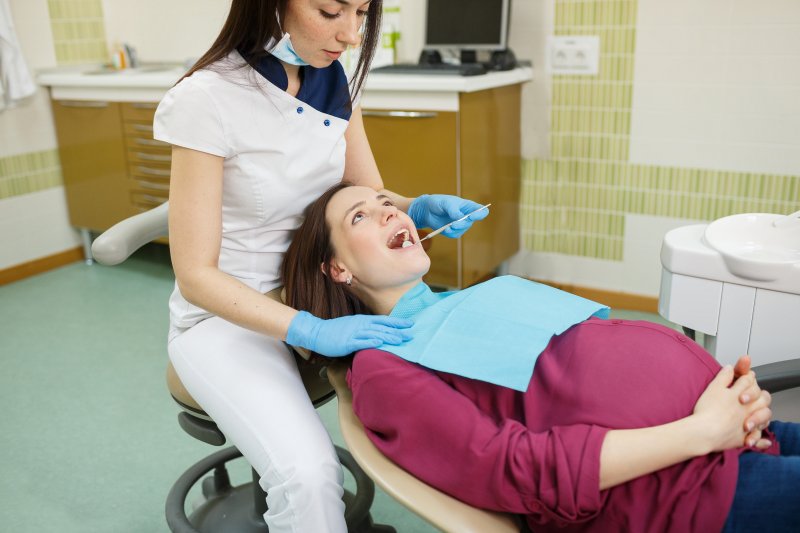
Dental anxiety doesn’t discriminate. If you are known to get nervous when you have a dental visit coming up, you aren’t alone. Over 30 million Americans experience stress related to their dental appointments. The good news is that you don’t need to put off getting the essential dental care you need. Sedation is available to help nervous patients feel more comfortable in the dental chair. But what if you’re pregnant? Is it safe for you and your baby to take advantage of the benefits of sedation dentistry during this time? Here’s what you should know!
Is Sedation Dentistry Safe During Pregnancy?
The drugs that are used in dental sedation may pass onto the fetus through the placenta. Ultimately, using sedation during the first trimester can lead to problems with development. Sedation during the third trimester may encourage premature labor. Sedation is typically safest during the second trimester of pregnancy, but most dentists recommend that invasive procedures that would warrant sedation wait until after the pregnancy if at all possible. If you must receive sedation during pregnancy, it is best to go with the minimal amount possible to make you comfortable.
Which Dental Procedures Are Safe for Pregnant Women?
It is both safe and encouraged to have your teeth examined and cleaned while you are pregnant. Due to higher hormone levels, pregnant women are more likely to experience gum inflammation, bleeding, and irritation, so regular checkups can help to prevent oral infections.
When pregnant, it’s important to do everything possible to prevent infections, and that may include getting a filling or crown to repair and protect damaged teeth. Emergency procedures, like root canals and extractions, are also sometimes necessary. In these cases, your dentist will administer a small amount of a local anesthetic to ensure that you are comfortable. This can help to reduce the stress on both you and your baby. It is safe for your dentist to use local anesthetics, like lidocaine, during these procedures. If necessary, they may also recommend a category B antibiotic to prevent and treat infections.
If you are interested in elective or cosmetic work, it is best to wait until after your baby is born. While these treatments are generally considered safe, it is also a good idea to avoid any possible risk of complications during pregnancy.
If you are expecting, let your dentist know how far along you are so they can take all the necessary precautions for you and your baby. If your pregnancy is high-risk, this is also something you should mention. The health and safety of you and your baby are your dental team’s top priorities!
About the Author
After completing his Bachelor of Dental Surgery degree from the Government Dental College and Hospital in Ahmedabad, India, Dr. Rajiv Shekhadiya earned his Doctor of Dental Surgery degree from the prestigious New York University. Currently, he is a proud member of the American Dental Association, the Texas Dental Association, and the Dallas County Dental Society. To learn more about sedation dentistry or to schedule an appointment at his office in Carrollton, visit his website or call (469) 694-3766.
